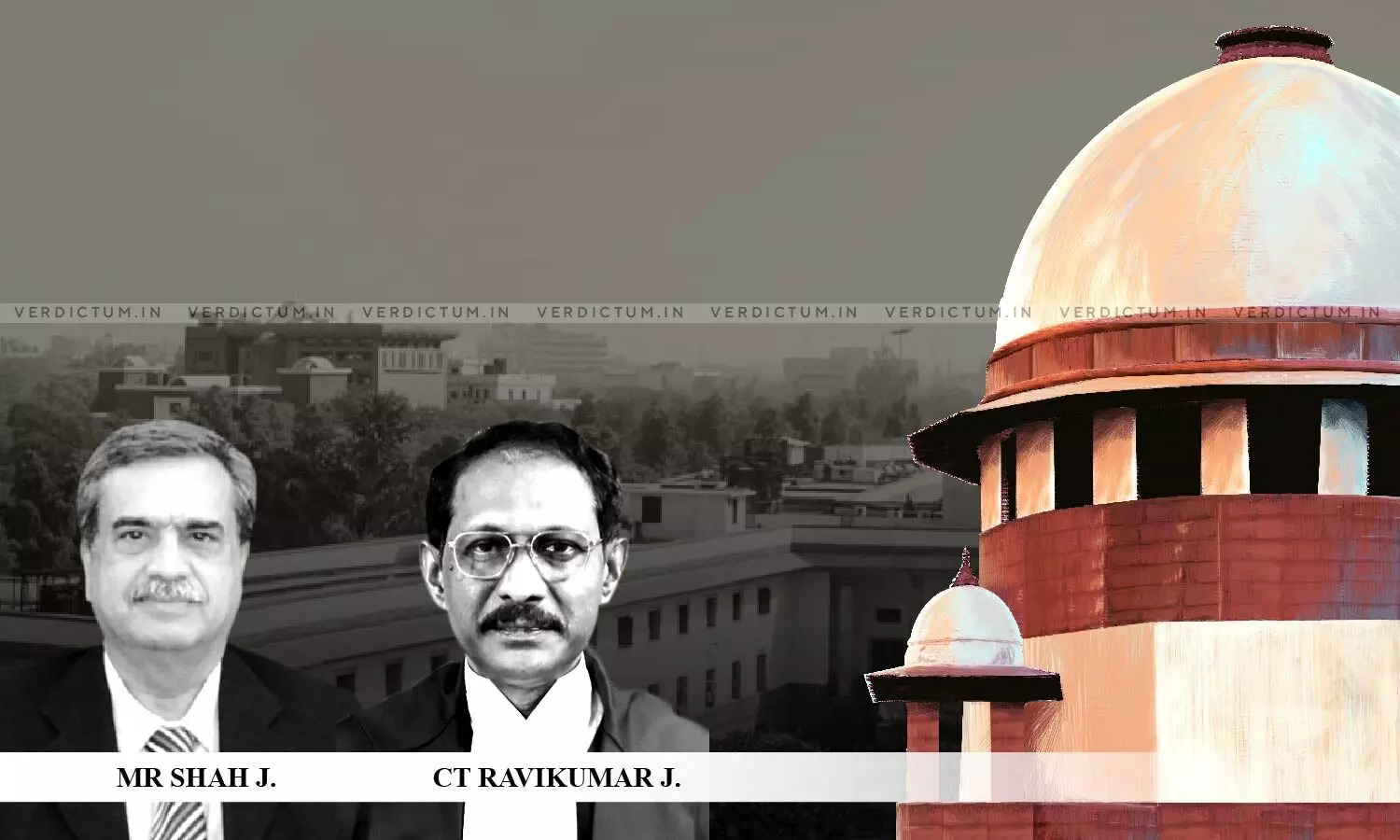
Accused's Plea On Applicability Of Section 300(1) CrPC Has To Be Considered At The Stage Of Discharge U/s. 227 CrPC- SC
 |
|The Supreme Court has observed that the accused's plea on the applicability of Section 330(1) CrPC has to be considered at the stage of discharge under Section 227 CrPC.
The Bench of Justice MR Shah and Justice CT Ravikumar held that the High Court did not consider the aforesaid aspect and therefore, remitted the matter back to the Trial Court to consider the plea of the accused on the applicability of Section 300(1) CrPC at the stage of discharge which is a stage prior to the framing of charge under Section 228 CrPC.
In this case, the appellant-accused was charged for the offences under Sections 148, 149, 448, 364 & 506 IPC. The appellant came to be acquitted by the Sessions Court and that thereafter after a period of nine years from the date of registration of the first FIR and one year from the date of acquittal, a second FIR came to be lodged against the appellant and other alleging inter alia that the appellant and other co-accused ad caused the death of one Ajay Acharya i.e., father of the first informant, the same person that they had alleged to have kidnapped and were acquitted of.
The Court noted that the second FIR was registered on the basis of the discovery of the skeleton and identification of the clothes and teeth of the skeleton, by the son of the deceased, 11 years after the alleged incident.
The appellant-accused approached the High Court and sought quashing of the entire criminal proceedings that arose out of the second FIR. The High Court, however, dismissed the proceedings. While dismissing the application the High Court granted liberty to the accused-appellant to avail the remedy at the stage of framing of the charge.
The appellant then approached the Trial Court by filing a discharge application under Section 227 CrPC read with Section 300(1) CrPC which was dismissed by the Court and later confirmed by the High Court.
Aggrieved, the appellant approached the Supreme Court.
Senior Advocate Siddharth Dave appeared for the appellant-accused, while Counsel Sunil Fernandes appeared for the Respondent-State before the Apex Court.
The Court referred to Section 227 CrPC which reads as under –
*Section 227 CrPC- Discharge: If, upon consideration of the record of the case and the documents submitted therewith, and after hearing the submissions of the accused and the prosecution in this behalf, the Judge considers that there is not sufficient ground for proceeding against the accused, he shall discharge the accused and record his reasons for so doing."*
The Court then observed –
"On a fair reading of Section 227 Cr.P.C, if, upon consideration of the record of the case and the documents submitted therewith, and after hearing the submissions of the accused and the prosecution in this behalf, the Judge considers that there is not sufficient ground for proceeding against the accused, he shall discharge the accused and record his reasons for doing so."
The Court agreed with the contention of the appellant's Counsel that the stage of discharge under Section 227 CrPC is a stage prior to framing of the charge (under Section 228 CrPC) and it is at that stage alone that the court can consider the application under Section 300 CrPC. Once the court rejects the discharge application, it would proceed to framing of charge under Section 228 CrPC.
The Court thus held –
"Under the circumstances, the learned trial Court has erred in not considering the application under Section 300(1) Cr.P.C. at the time of framing of charge and/or prior to framing of the charge. As observed hereinabove, the trial Court had observed that the appellant-accused shall be entitled to raise all points as mentioned in his application under Section 300(1) Cr.P.C. at the time of hearing on framing of charge."
The Court observed that such exercise was required to do at a stage prior to the framing of the charge and if ultimately the Court concludes overruling the objection of Section 300(1) CrPC. and on facts satisfies then it may frame the charge as provided under Section 228 CrPC.
Thus, the Court held –
"Therefore, the matter is required to be remanded to the learned trial Court to consider the plea of the accused on applicability of Section 300(1) Cr.P.C. at the stage of discharge under Section 227 Cr.P.C., which is a stage prior to framing of the charge under Section 228 Cr.P.C."
Accordingly, the Court set aside and quashed the impugned judgment of the High Court and remitted to the Trial Court to consider the application under Section 300(1) CrPC filed by the appellant–accused along with the application for discharge under Section 227 CrPC, which is a stage prior to framing of the charge and thereafter to pass appropriate orders on framing of the charge under Section 228 CrPC.
Cause Title - Chandi Puliya v. The State of West Bengal